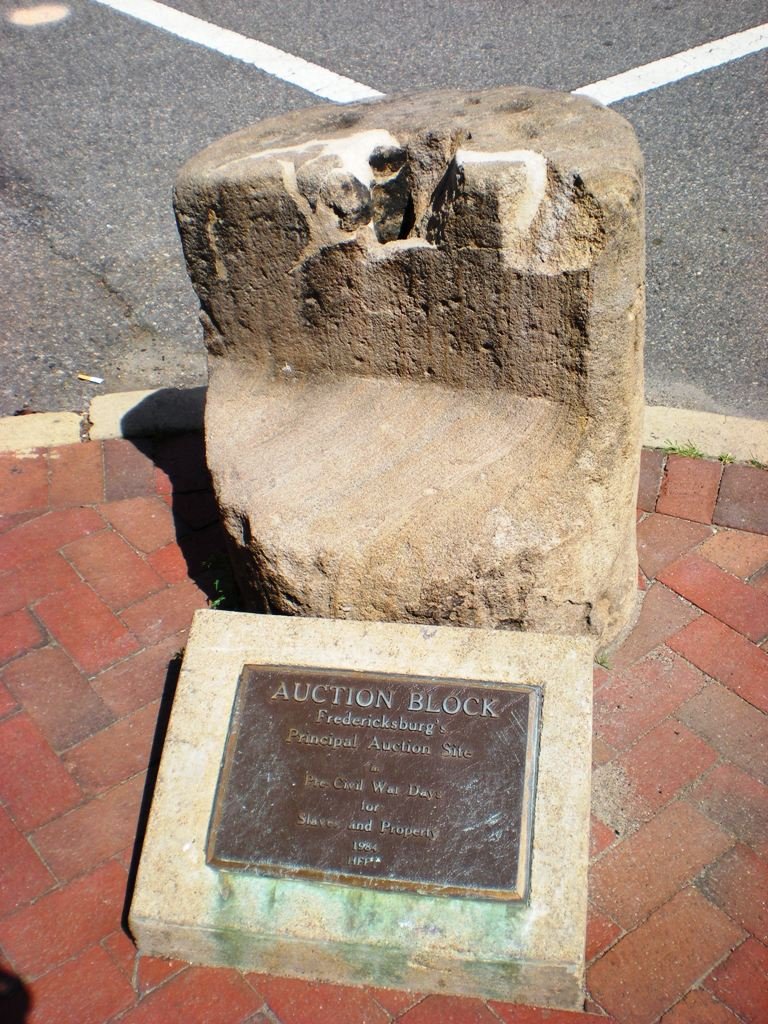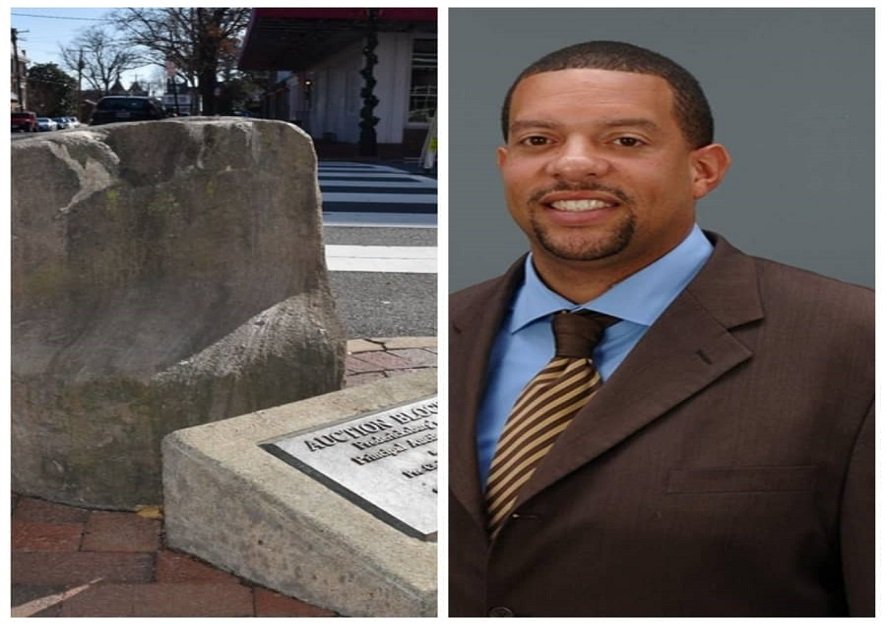Sequel to the paradigm shift of power from blacks to white people in 1400s, the caucasians went on a rampage of accruing the wealth, land, minerals, and human labor of Africanland. In the Western world, America led the industrial exercise and with wealth bellowed human rights, democracy and justice from the roof tops demanding same from other states.
The then governments that were not ready to yield to their beckons were overrun. The country became a global leader, but was seen as a bully in some people’s sight.
However, in its backyard, African-Americans on whose back the country made its wealth were largely ignored or given crumbs and in Virginia, even calls to have a 176-year-old slave auction block removed was fiercely resisted by the white elements.
At the wake of the eruption of George Floyd’s killing protest, the stone was sprayed with graffiti amid chants of “move the block.”
Eventually, the block which sat at the corner of William and Charles streets with a small, ground level, bronze plaque reading: “AUCTION BLOCK, Fredericksburg’s Principal Auction Site in Pre-Civil War Days for Slaves and Property,” was removed by the City of Fredericksburg on Friday, June 5, 2020.

Moreover in 2017, a local NAACP chapter has called for the block’s removal which served as a symbol of racial oppression, as others thought otherwise.
The 800-pound stone whose new home is the Fredericksburg Area Museum for 20 years is said to have been the marker where blacks were displayed and sold as slaves auctioned off to the highest bidder.
According to Fredericksburg historian John Hennessy: “The institution of slavery was central to the community prior to the Civil War,” adding “The trauma involved in that passed through generations. The block became an embodiment of the present and past pain in this community.”
The block’s removal is also a personal victory for Councilman Chuck Frye Jr., the only African-American on the City Council who proposed removing Fredericksburg’s slave auction block in 2017, but was counter-voted at the city council.
“I think racist folks loved it, historians understood it, and black people were intimidated,” the man whose father served in the United States Army stated.
The City Council meanwhile hired a non-profit, the International Coalition Sites of Conscience (ICSC), which helped the city engage the community in conversations about the auction block and historical events of injustice and racial biases. Hundreds of City residents participated in the ensuing year-long community collaboration process led by the ICSC and City leaders.
After the ICSC report, Frye once again brought his proposal to remove the stone and this time around the City Council voted 6-1 to approve its removal.
Meanwhile, two local businesses filed a petition to keep the auction block in place. The legal hurdles we’re finally crossed on April 1 but, the coronavirus pandemic meant it became safe to remove it in June.
Mr. Frye’s determined campaign also underlines the need for ethnic representation on critical boards, city council and other such platform. It’s almost certain that there has been no black person in this case, the first vote against the removal of the slave era enigma would have stood further causing psychological pain and trauma for the African-Americans in the community.
As a community member put it: “It reminds us of a time when we were mistreated, we were property, we weren’t considered human beings, we weren’t equal.”

